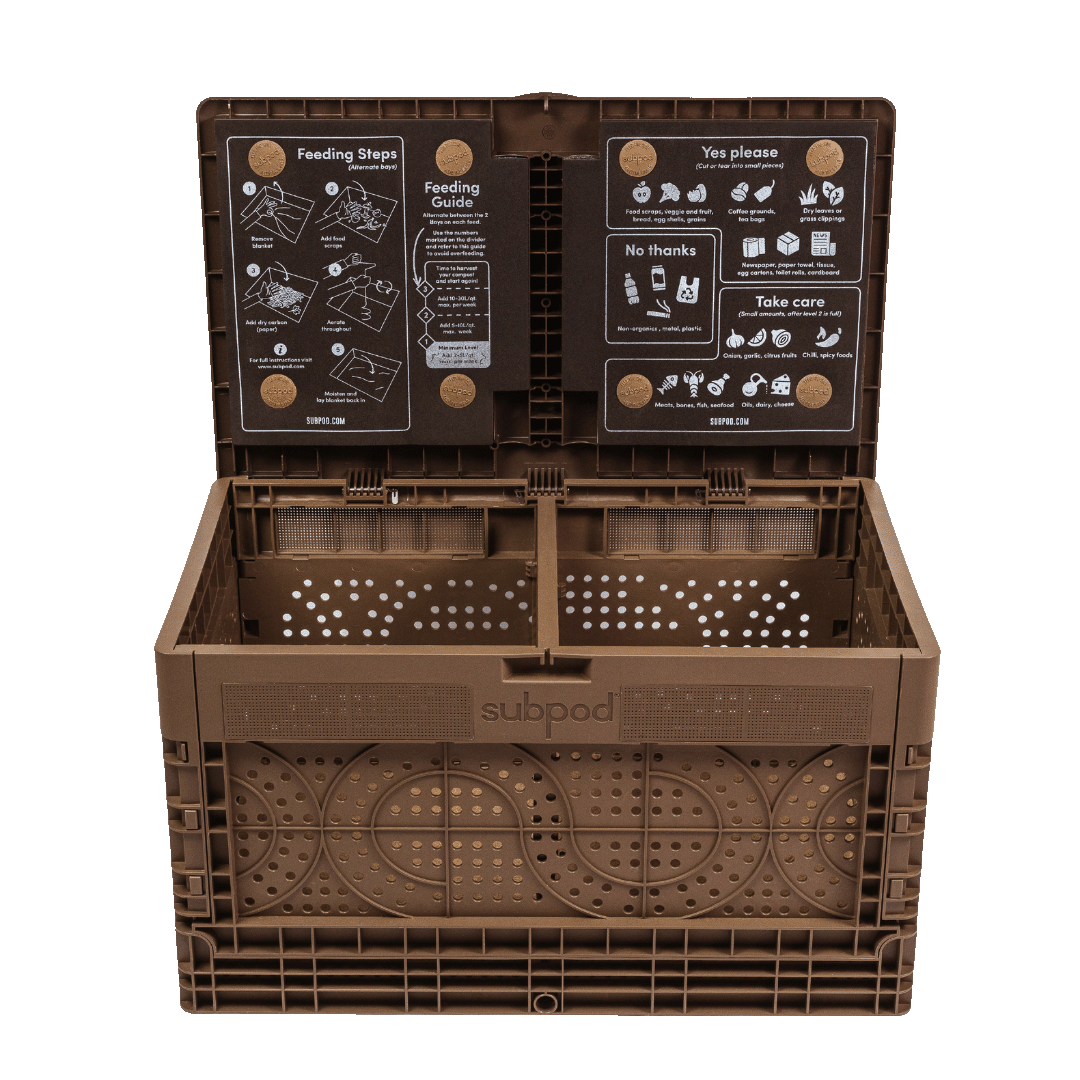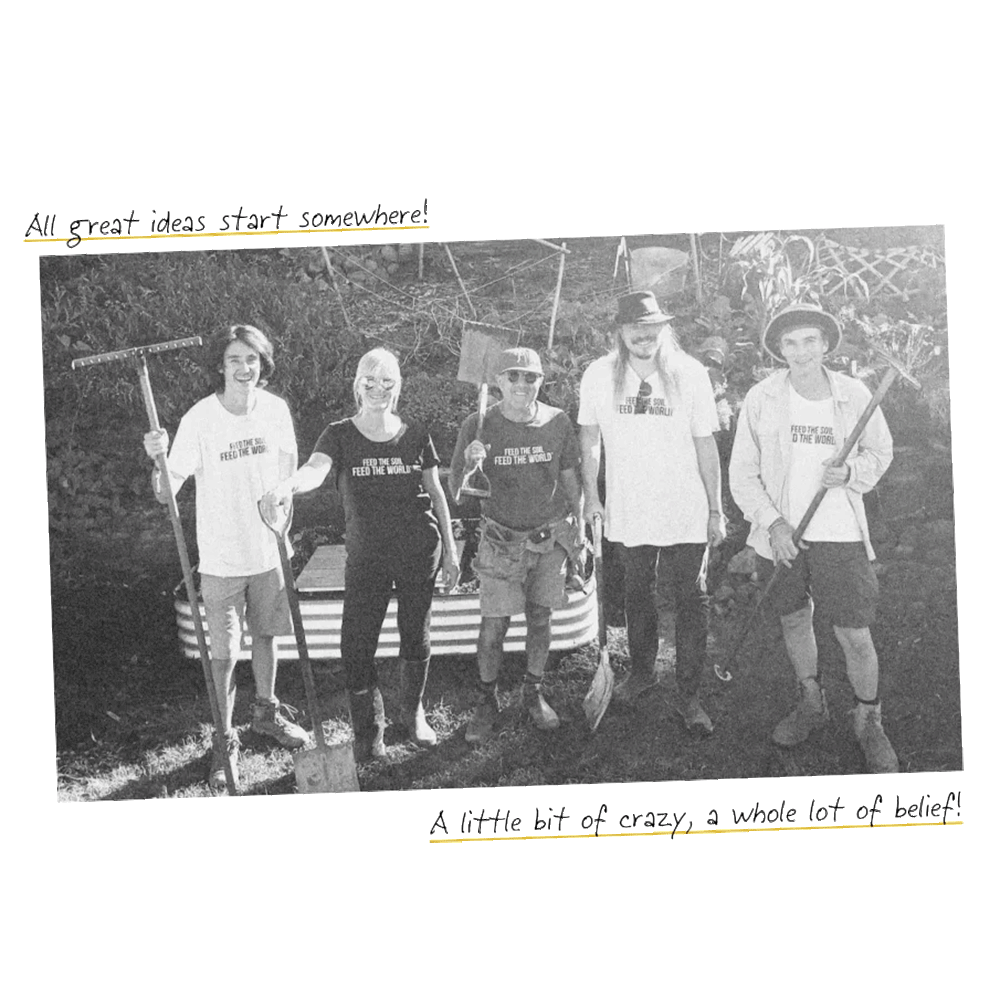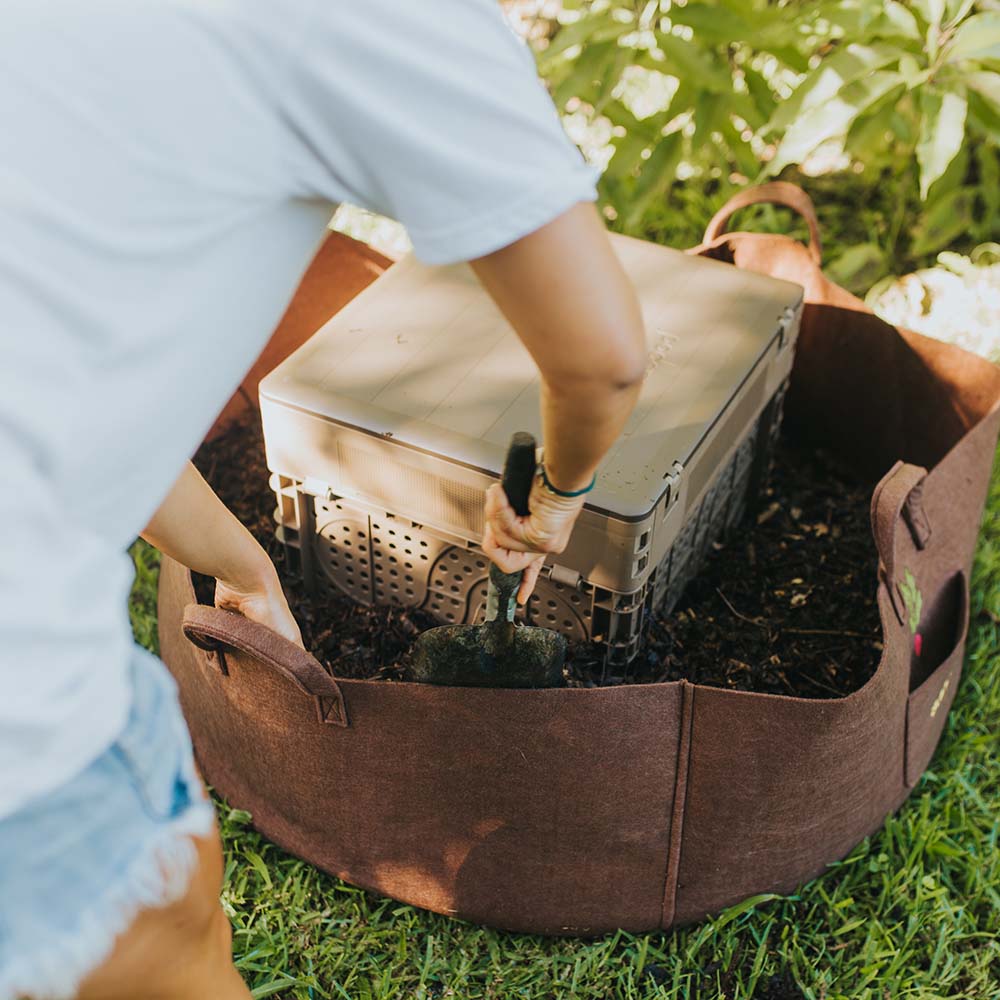Soil is the foundation of your garden, the key to the health and vitality of everything you grow there. Think of it as the home for your plants. If humans live in a comfortable home, with everything they need at hand, they’re happy and they thrive. Plants are similar. If the soil they live in is healthy, high quality and optimised for them, they will grow healthy and strong.
Today we’re going to look at the factors contributing to healthy soil that plants will thrive in. We also want to discuss the one key ingredient that’ll really give your garden a boost! (Not-so-subtle-hint… it’s COMPOST!)
A Healthy Soil Ecosystem
That soil out there in your garden is more than just a patch of dirt. It’s a living, breathing ecosystem, full of life and organisms and energy. As the foundation from which your plants grow, there are a few things it needs to provide. Let’s take a look at them:
Soil Provide Nutrients
There are three basic nutrients that plants need. If you have them in the right combination, your plants grow and develop properly, while building up a powerful resistance to pests and diseases.
Insufficient nutrients mean that deficiencies in the plants can lead to stunted growth, poor fruit and flowers and discoloured leaves. Plants in this sort of condition are extremely vulnerable to pests and diseases.
The nutrients are:
Nitrogen: This is essential for leaf growth. It’s essential in the photosynthesis process, and helps form the building blocks of protein for the plant.
Phosphorus: Vital for root growth and seed and flower formation.
Potassium: Helps maintain overall vitality as well as assisting in the movement of sugar and starch through the plant.
As well as these three main nutrients, there are other trace minerals that plants need a small amount of to thrive. Some of these are really important, but in terms of quantity plants don't need huge amounts.
Soil Retains Water for Plants
There are different types of soil, and some are better suited to keeping optimum water levels for the plants. If water passes through them too easily, the soil dries out and your plants will end up wilting. If they hold too much water, your garden gets waterlogged.
The ‘pores’ between your soil particles hold the water, air and nutrients essential for plant survival. Some types of soil have larger pores, some are very compact. The basic classification is as follows:
Sandy: Sandy soil is generally regarded as poor for growing, because its large pores are not suited to holding water or nutrients. It tends to dry out quickly.
Clay: Clay has very small particles that are densely packed together with little airspace. Although it retains water, clay doesn’t allow for much percolation, which can lead to waterlogged conditions.
Loam: This is a balanced soil type containing a mix of particle and pore sizes. It’s crumbly, rich and regarded as the best foundation for your plants to grow out of.
Soil Protects Plants
Soil plays an important part in keeping your plants safe. For a start, they provide the physical support around the roots that holds plants upright. The healthier the soil, the more resistant your garden will be to strong winds or heavy rainfall. The porosity of the soil will also help reduce erosion and flooding
Topsoil also filters water passing down through it, removing dust, chemicals and contaminants. This buffering helps keep the groundwater pure.
Home Composting for Healthy Soils
Home composting is an almost-magical way to get beautifully balanced soils that are nutrient rich and hold the right amount of water. Compost helps create a soil ecosystem that satisfies all of the conditions we’ve spoken about above. Let’s take a look at how:
Compost optimises your soil density: If your soil is too loose, it helps clump it together and retain water and nutrients. If it’s too densely packed, compost helps to loosen it, allowing air in and water to drain out. This creates optimum, supportive conditions for roots to grow.
Compost enriches the soil: Compost contains the full spectrum of essential plant nutrients, from the three main ones to trace elements not present in synthetic fertilisers. It reduces the nutrients more slowly than these fertilisers too.
Compost attracts the right kind of life: Soil with compost added will have many insects, worms and beneficial microorganisms in it. They assist in protecting from diseases and pests while keeping the soil structure in sound condition!
Compost balances soil pH: pH is the measure of whether your soil is too alkaline or acidic. pH of seven is neutral, with higher numbers being alkaline and lower being acidic. Compost helps keep soil pH between six and eight, so if your soil is too acidic or alkaline it helps balance it out.
The Ease of Home Composting
Here’s the great thing about home composting… anybody can do it! There’s a slight learning curve, but once you’re up and running it only takes a few minutes out of your day. The rewards are immense, particularly when compared to the small amount of effort and time required! Healthy, resilient plants and vegetables are just a few steps away!
Subpod is an underground composting system that sits semi-submerged in your garden. The lid even doubles as a stylish garden seat! You open it up, and place your organic food waste inside. Here you have a gang of worms and microbes that work their magic (this is called ‘vermicomposting’), turning the food waste into delicious, nutritious ‘black gold’ compost.
With a Subpod home composting worm farm and our range of accessories, it doesn’t matter the size of your backyard or open space. We can help you transform it into a lush garden bed. Check out our handy buyers guide to find out the setup that will suit your space best. And if you ever have any questions about Subpod or composting, our community over at GrowHub is always happy to help answer them.
Keep your soil healthy this spring!
Enjoy nutritious compost with a Subpod worm farm system.





Leave a comment
This site is protected by hCaptcha and the hCaptcha Privacy Policy and Terms of Service apply.